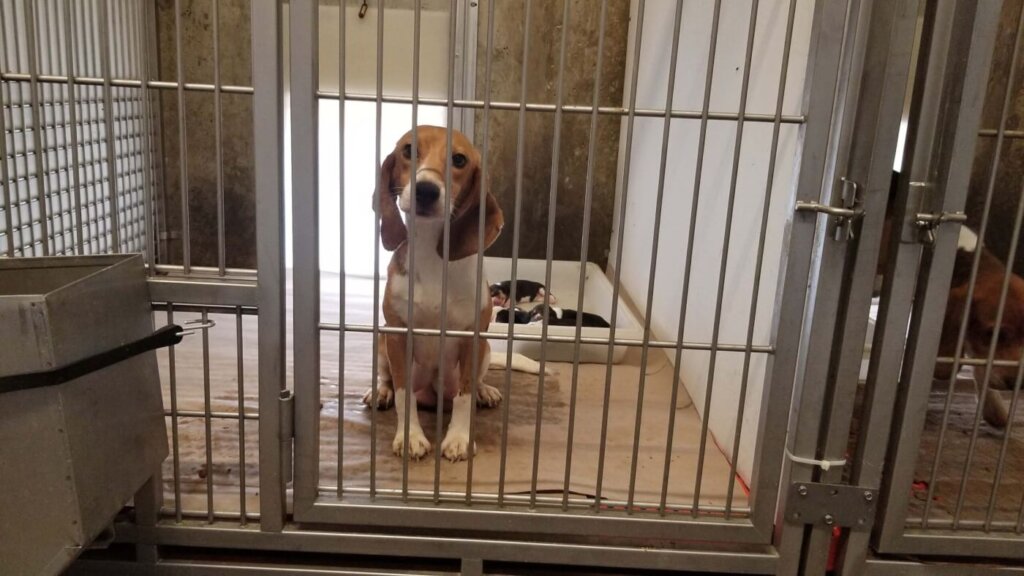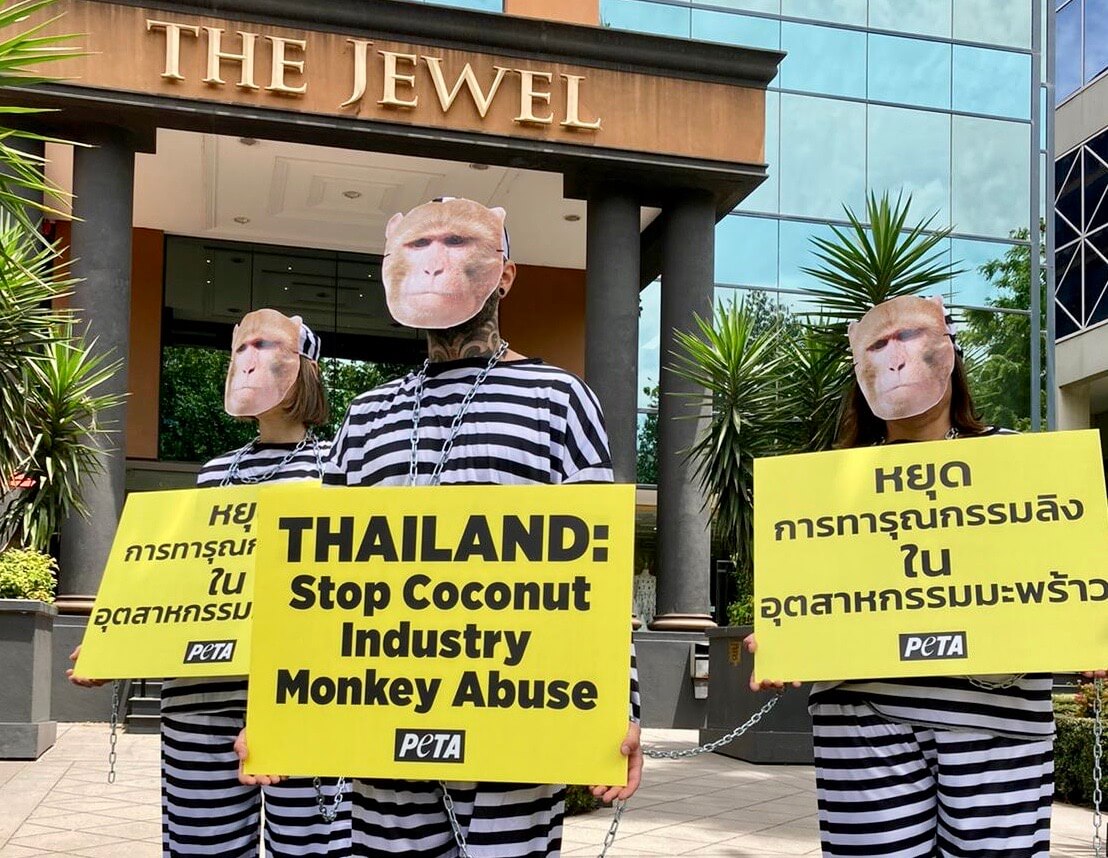
Chained ‘Monkeys’ in Melbourne Protest Forced Labour
Chained PETA “monkeys” dressed in prison suits descended on the Royal Thai Consulate-General in Melbourne with signs reading, “Thailand: Stop Coconut Industry Monkey Abuse,” to call on the ambassador to end the use of monkey labour in the nation’s coconut industry.

The protest follows PETA’s exposé, which found that monkeys in Thailand are chained, isolated from their peers, transported inside small cages, and forced to climb trees and collect coconuts day in and day out for coconut milk, oil, and other products that are sold around the world, including in Australia.
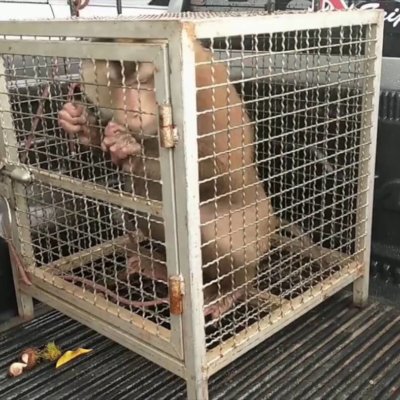
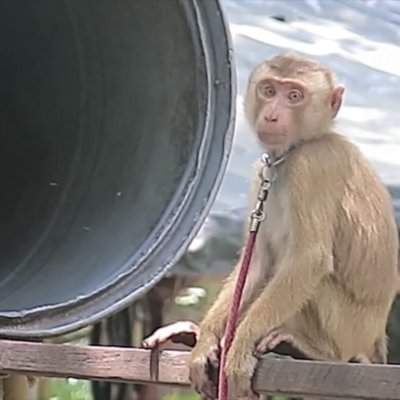
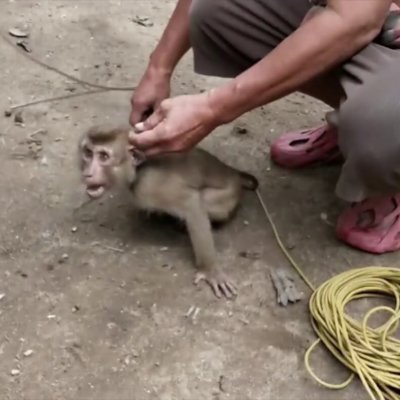
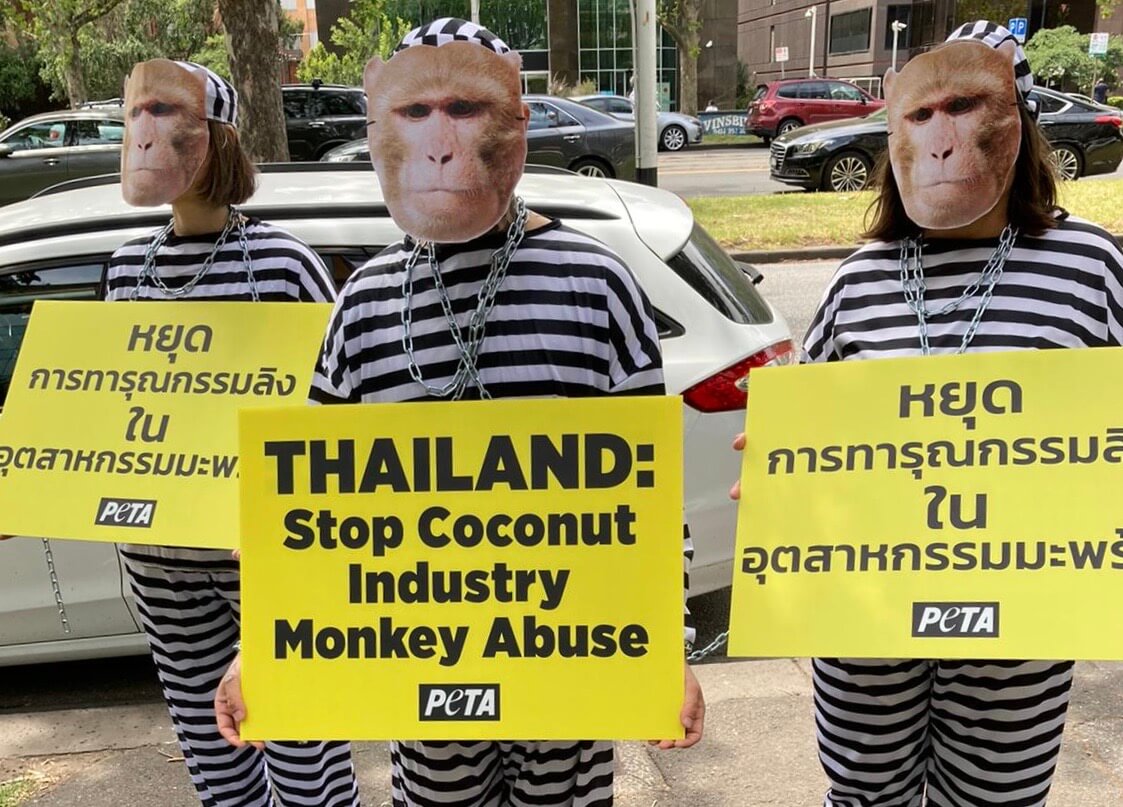
PETA Asia’s investigators found cruelty to monkeys on every farm, at every monkey-training facility, and in every coconut-picking contest that used monkey labour. When not being forced to pick coconuts or perform in circus-style shows for tourists, the animals were kept tethered, chained to old tyres, or confined to cages barely larger than their bodies. Many displayed repetitive behaviour indicative of extreme mental anguish, including one monkey who chewed on one of his own limbs. One coconut farmer confirmed that when monkeys are terrified and try to defend themselves, handlers may have their teeth pulled out.
After being alerted to the situation, more than 26,000 stores around the world have pledged not to sell coconut products obtained through monkey labour. Most recently, New Zealand grocery giant Foodstuffs – which encompasses retail brands PAK’nSAVE, New World, and Four Square, representing some 600 stores – delisted Chaokoh products after we shared the results of PETA Asia’s investigation.
Despite being made aware of the issue by PETA, supermarkets in Australia have yet to take action.
Take Action for Monkeys
Help monkeys by never buying Chaokoh coconut milk or the brand’s other exploitative coconut products. Make sure the coconut milk that you buy comes from companies that don’t support forced monkey labour.
Animals Are Suffering in Laboratories – Help Save Them Now
